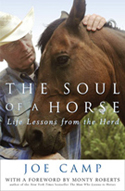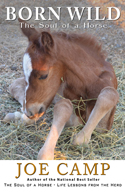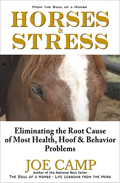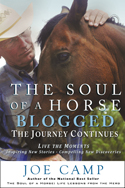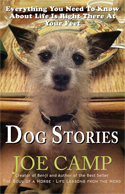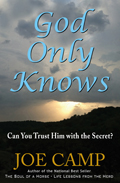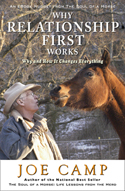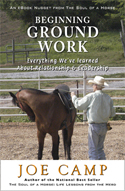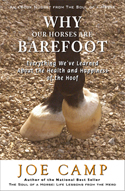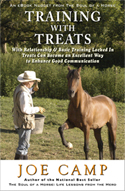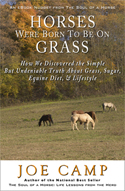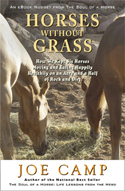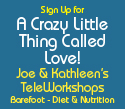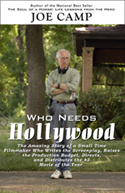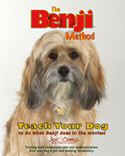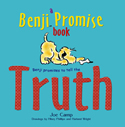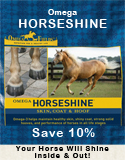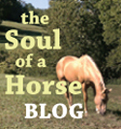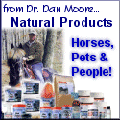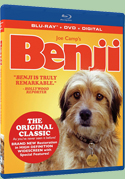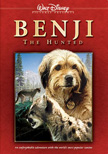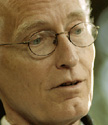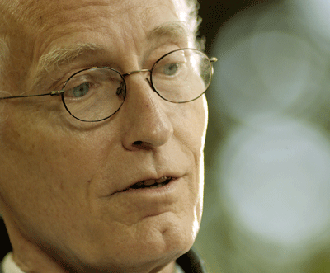
1) There are thousands of horse books on the market. Why did you write another one?
I didn’t actually. I mean, yes, of course, it has to do with horses, but first and foremost it’s a story. I’ve spent most of my life telling stories, most of them involving animals. And I found this one particularly fascinating. Two complete novices-my wife and I-leaping into this enigmatic world of horses literally without a clue. The mistakes, the fear, the fascination, and the frustration with some of the answers we were getting. And ultimately the discovery that something was very wrong in this world of horses. Imagine a couple of newcomers wrestling with the notion that either we were completely nuts or that we had truly stumbled upon something that was very wrong. That’s where the book got started. It’s a story about the journey.
2) You are the creator of the very successful Benji series and now, in this newest venture, THE SOUL OF A HORSE, you have leaped into horses with both feet. What similarities have you found between dogs and horses?
I suppose the only real similarity would be that, given the opportunity, both want to please humans very much. Both can be willing, generous partners. But their hardwiring is entirely different. The dog, descended from the wolf, is a predator. The horse is a prey animal, a flight animal. React first and ask questions later. And I think that is one of the most often misunderstood behaviors of the horse. This freaky flight response has more often than not been interpreted as a horse being mean. Like the story in the book about my wife, Kathleen, getting dumped on her derriere when the dogs next door ran down to the fence barking. The mare she was standing beside leaped sideways like a jackrabbit and Kathleen was in the way. I won’t give away the story, but suffice to say many people would have disciplined the horse for that, when all she was doing was what her genetics dictated. If horses didn’t have this react-first-and-analyze-later hardwired response, they likely wouldn’t have survived as they have for the past fifty-five million years. They could’ve well been extinct eons ago.
3) Why do you think there is such a disparity between the traditional thinking about horses and what you think it should be?
That’s a pretty loaded question. First, it’s not really what I think that matters. It’s what Kathleen and I discovered in this wild and crazy journey that the book covers. And what we ultimately discovered is that the so-called “domestic” horse is genetically the same as horses living in the wild. Which means that all horses are hardwired to live and function like horses in the wild. And most domestic horses are living in a way that is diametrically opposite to how they are genetically programmed to live.
So why is there disparity between the life a horse is genetically designed to live and traditional thinking? One reason, I suppose, is that to some it might be really inconvenient to care that much about the horse. But I think most horse owners just don’t know. They don’t have the knowledge. We didn’t when we started. Our horses were living in stalls, with shoes, eating wrong, and never moving. We were the typical horse owner, until we started asking questions–lots of questions. Many of the answers we were getting didn’t really make any sense, and with every one of these answers came more questions. It was like peeling an onion, one layer at a time, and suddenly one day we said, “Wow. Either something is very wrong here or we’re completely nuts.” It turns out we weren’t nuts.
4) So how should horses be living?
The short answer is that the horse should live as much like he would in the wild as is absolutely possible. We discovered that there is really no such thing as a domestic horse. There are only wild horses living in captivity . . . or wild horses living in our care. But what I hope is more important about this book is that the lessons we learned from these horses have immense applications to the way we live our lives with other humans.
It’s all about relationships, and choices, and trust. And these guys [the horses] taught us that the quality of life is often found in the choices we make. That we should approach every relationship–whether it’s with a boss, an employee, a family member, or a spouse–from the other end of the lead rope. In other words, we should walk in their boots, not ours. We should gain understanding of what they’re about, what they want out of life and out of a relationship, and only then move forward.
5) What do you hope the main takeaway will be for people who read THE SOUL OF A HORSE?
That you can live your life every day, go to work, tend the kids, mow the grass, and still make a positive difference on this planet at the same time. That your soul prospers from sharing, caring, relating, and fulfilling. That nothing can make you feel better than doing something good for another being. Not cars. Not houses. Not face-lifts. Not blue ribbons or trophies. And there is nothing more important in life than love. Not money. Not status. Not winning. It is the synthesis of this book, and why it came into being.
And you should always give the choice of choice . To your horse, or your employee, or your friend, or your loved ones. Care enough to want them to be healthy and happy. It will come back a hundredfold.
And always question everything. Be your own expert. Gather information and make decisions based upon knowledge and wisdom, not hearsay. Know that if something doesn’t seem logical, it probably isn’t. If it doesn’t make sense, it’s probably not right.
For More Information Contact Nancy Garrett
nancy@thesoulofahorse.com
#####
High resolution images available in the Press Room
For more information contact: Nancy Garrett, nancy@thesoulofahorse.com

